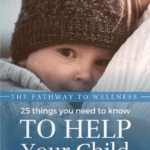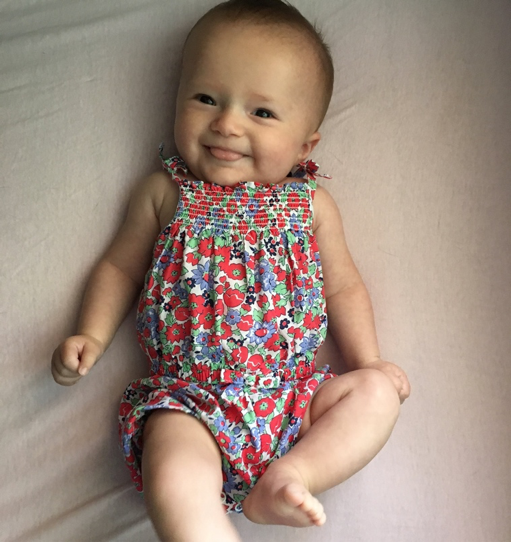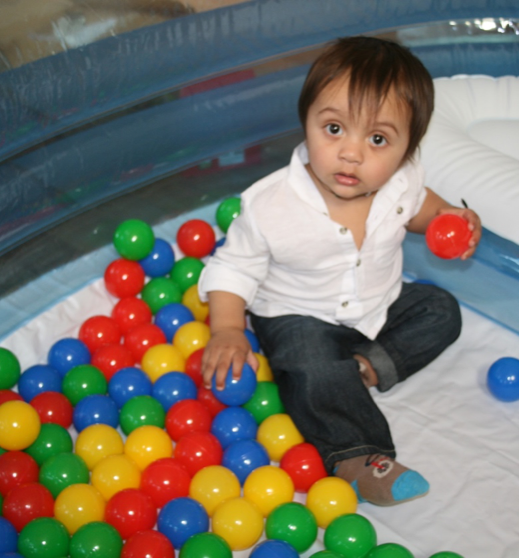Dx: Deaf and Developmentally Delayed: Henry Success Story
Henry fights for an ordinary life and gets an extraordinary one.
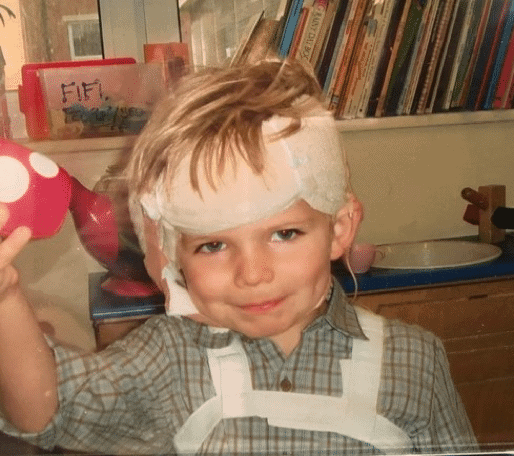
A little more than 13 years ago, our son Henry was 7 weeks old and he had an appointment at the Portland Hospital to have a hearing test. He had failed what was called an echo-response test, a hearing test that all babies have in the first few days of their lives. I was told not to worry, as this test was notoriously unreliable, but that I would have to take him to a hospital to do another more definitive test just to be sure. I wasn’t remotely worried. I was more annoyed than anything else that this was messing up his sleeping routine for the day, which would mess up my sleep that night.
The audiologists at the Portland Hospital checked him again and decided to do a more in-depth test. Again, no worries, just routine. I left Henry in their capable hands and put more money in the meter to avoid a parking fine. When I left; everyone was smiley and chatty and the atmosphere was light.
When I returned, and it is something that will stay with me forever – the atmosphere had completely changed. No one looked me in the eye. I took Henry back in my arms and I was ushered into a little room to one side.
“We have tested Henry,” said the audiologist. “He is deaf, but don’t worry, some deaf people are getting quite good jobs these days.”
I couldn’t quite process what the man was saying.
I asked if that would change, if his hearing could get any better. “Hearing never improves, it only declines,” was his answer.
I asked if he could be mistaken, if we should test again. “No. It won’t change. He is, without doubt, deaf.”
The man was right; Henry was and is profoundly deaf.
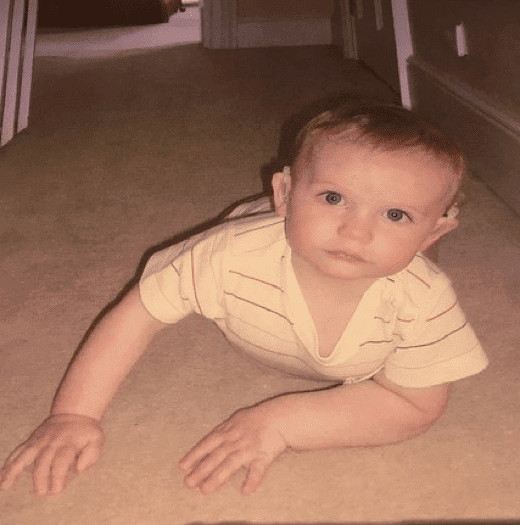
There followed trips to the audiologists to fit hearing aids (a hearing aid trial) but his ears grew so quickly that the hearing aids would quickly feed back and give a buzzing noise. We would have to have them re-fitted, which was a painful and traumatic experience for a tiny baby.
I had heard of The Institutes several years before from friends whose son had been born semi-paralyzed and didn’t speak. They had attended the “What To Do About Your Brain-Injured Child” Course and followed the program. Their son had responded really well and was now up to speed, if not ahead of his classmates.
This same son is now 23 years old, went on to be the top scholar in his year at Eton College, read Physics at Oxford University, and is now doing a doctorate in something so complicated and clever that I don’t understand the first thing about it. He speaks very well now, and is a brilliant rower on top of it all.
I called The Institutes straight away to ask if they could help and they said that they could only help if his lack of hearing stemmed from a brain injury, not an ear problem. It looked as though it was a problem with his inner ear, so I didn’t pursue it. I did go to other people though. I went to a healer and a cranial osteopath, along with other audiologists and doctors who tested him for syndromes of which deafness is a part.
The cranial osteopath told me that there was an additional problem with his brain and that he thought there was some doubt whether Henry would be able to walk. The healer said that he had problems. When I then sought the advice of a pediatric neurologist, she confirmed that his head circumference wasn’t growing in line with his body, his body was stiff, he slightly folded in on himself, and that the signs at this early stage were leading to some sort of neurological problem on top of his hearing. He was classified “developmentally delayed.” She recommended physiotherapy three times a week, which didn’t seem to me enough to make much of a difference. I told the neurologist of this amazing place I had heard of in Philadelphia and she warned me against it, saying it wouldn’t work and these programs “tear families apart.”
I called The Institutes again and they said they could help, so I booked Henry, my husband, and myself onto the next available course.
In the meantime we were having appointments with audiologists, speech therapists, doctors, osteopaths, physiotherapists, etc., and having up to 5 appointments per day.
We attended the “What To Do About Your Brain-Injured Child” Course when Henry was 9 months old. It was the first time anyone looked in detail at Henry and came up with specific issues that needed to be addressed. During the assessment we found out that, among other things, Henry was not responding to heat, cold, or pricking. His responses were not working at all. The staff at The Institutes felt that, as there was clearly a brain injury of some kind, maybe his hearing loss may be part of that, too.
We came home with a full (intensive treatment) program of reading cards, loud sounds, repeated tactile stimulation of hot and cold and light pin pricking over his whole body, and patterning (moving his body through the motions of crawling). The reading words were tricky to do, as he was not hearing words, so for every word I showed, I had to find a relevant picture to go with it.
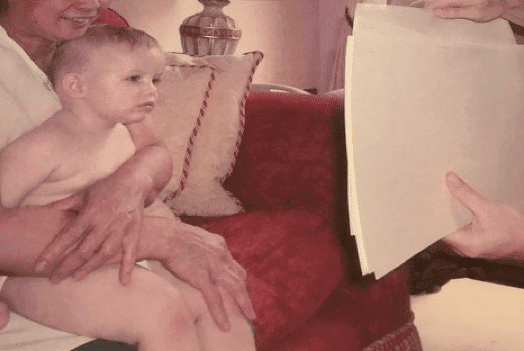
We had a slide built to encourage him to crawl and creep. We measured all his food and kept strictly to The Institutes recommendations. We stopped all other therapies. I didn’t discuss The Institutes Program with the authorities as, at best, I already knew they wouldn’t approve and, at worst, I feared they might try to intervene.
Everyone’s life went on hold. I would prepare the reading words and books at night and we would try our best with the program all day every day. Two ladies came from around the corner to help me to pattern Henry. My daughters, ages 6 and 4, and my husband helped pattern on the weekends and evenings. They became expert patterners.
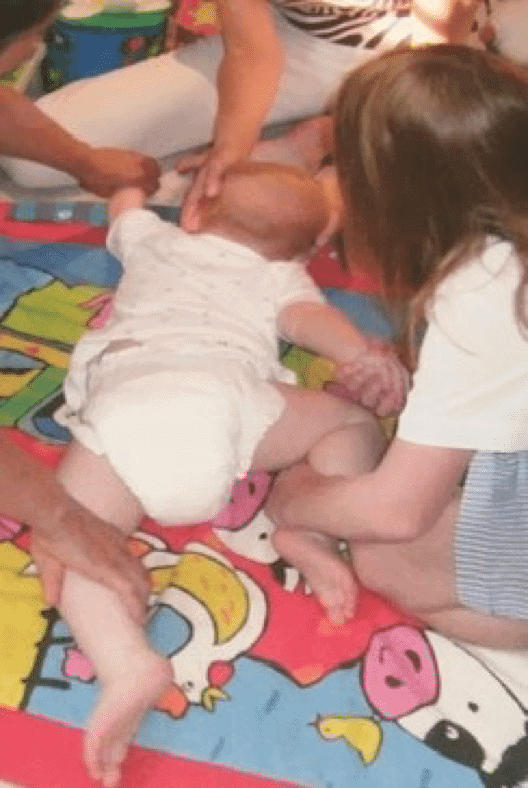
Henry started creeping at 11 months, and we then had to have him creep for everything, as his daily creeping target was 800 meters. It is so long ago now that it feels like a different life, but I think he started walking at 15 months, which we felt was pretty miraculous – given his starting point.
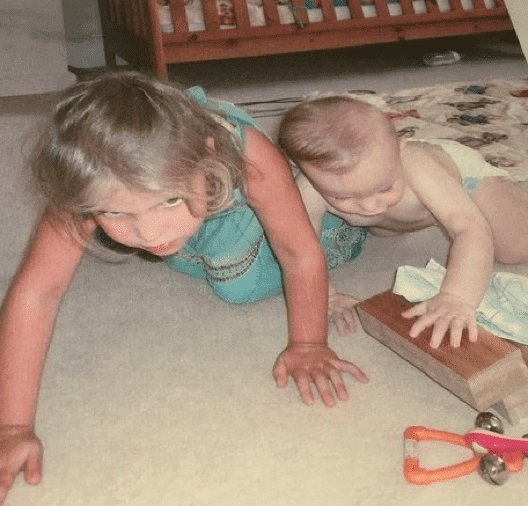
The program was really hard. It felt like Groundhog Day. We constantly had to push ourselves to keep it up. It was particularly hard when I would take Henry for a walk and people would tut as they passed us by.
At 12 months the tests for the cause of his deafness finally came back as a genetic issue of the cochlea (inner ear). His deafness was indeed a separate ear issue to his developmental delay. His hearing aid trial hadn’t worked so at 14 months he was fitted with a cochlear implant and needed time to recover from the operation, so our scheduled visit to The Institutes had to be delayed.
As soon as he recovered, we resumed the program and began an Auditory Stimulation Program, which is The Institutes program to develop the auditory pathway from the level of the newborn up to full understanding.
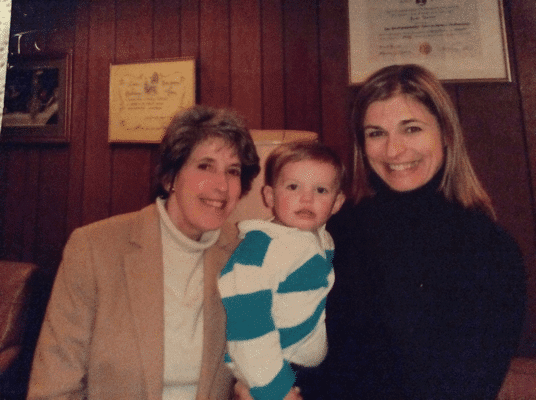
When we returned to The Institutes when Henry was 18 months, they said we had brought back a different boy. Henry was within “normal” boundaries and he was graduated to life. That will go down as one of the best days of my life!
We stopped patterning but continued the reading cards and books for another couple of years. At the age of four, he had his second ear implanted, and by the time he went to school at five he was equal to, if not a little ahead of, his peers in all aspects of speech, listening, and mobility.
Because of his hearing impairment I think the reading didn’t come as quickly as it might for other children, but I compare him with my daughters now and there is no question that his ability to absorb, process, and retain information, and his numeric ability, is greater and speedier than his siblings. His sisters are annoyed at me for not doing the program with them, as they have found learning much harder and more laborious!
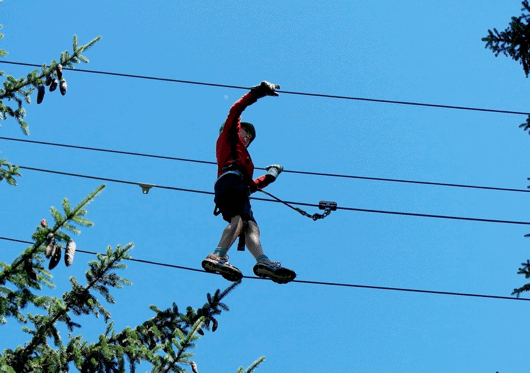
We were amazed when he was accepted to an academic prep school in London (most children who applied had been tutored and prepped for months ahead of this, we did nothing extra for Henry). We were even more amazed when he was accepted at Eton College.
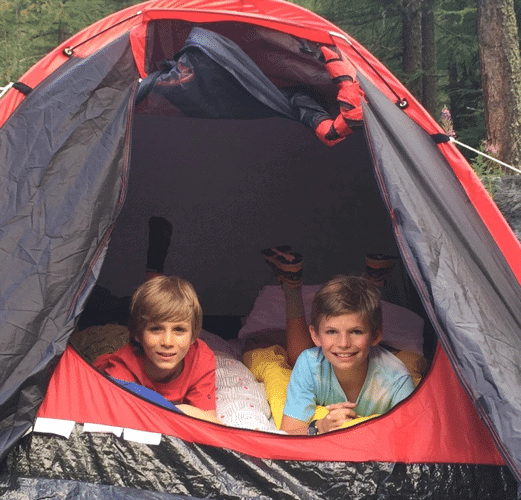
Even so, when I heard he had been accepted I had to sit down for a moment and reflect on how far he had come, what an extraordinary journey he had had, and who was to thank for it all.
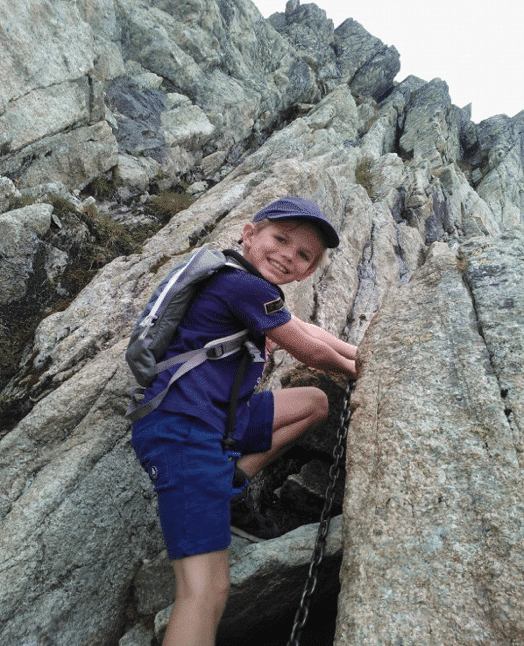
He loves skiing, football, tennis, swimming, and climbing. He is, of course, a master at monkey bars! He sings and dances and acts. He is holding his own at school with (I would have to say) minimal effort, and he has lots of friends.
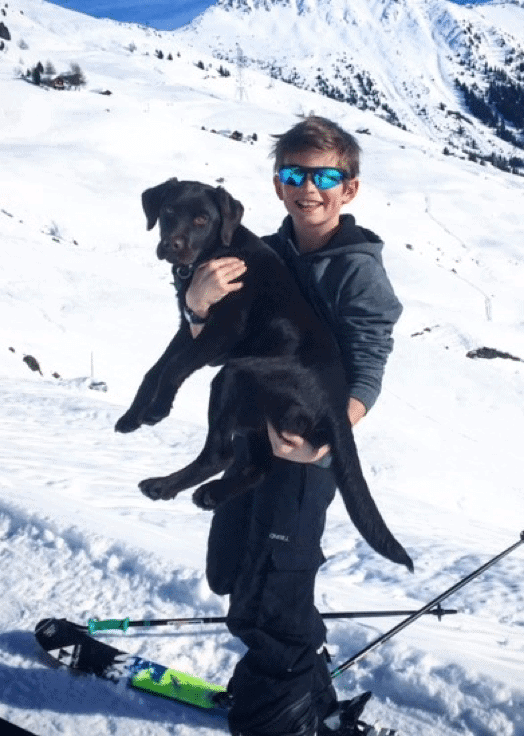
The days of the program seem so long ago now. I remember making deals with God that I would never complain about anything or anyone again in my life; that I would be the most perfect person ever, if he would just let Henry be “well.” Sadly I forget my side of the deal a lot of the time, but I will never forget what The Institutes did for Henry and for us as a family – to give him the gift of a normal life and a future that is wide open.
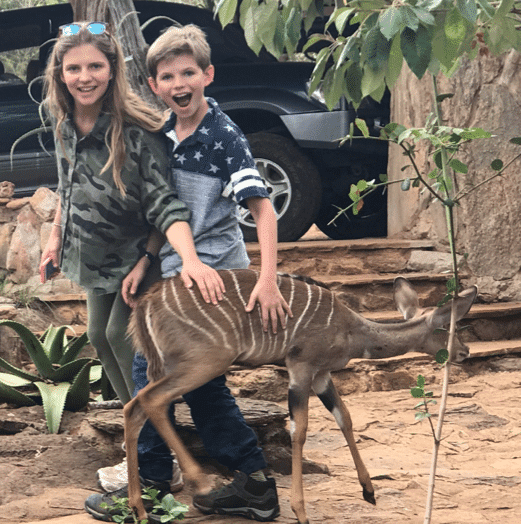
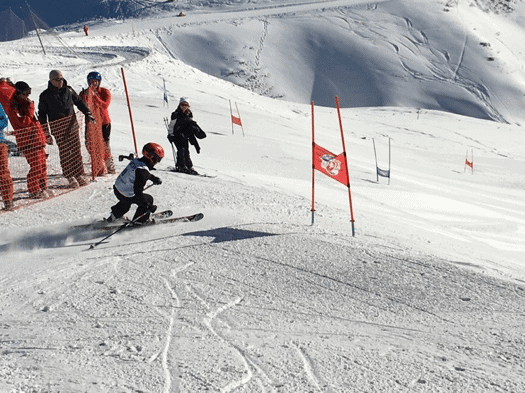
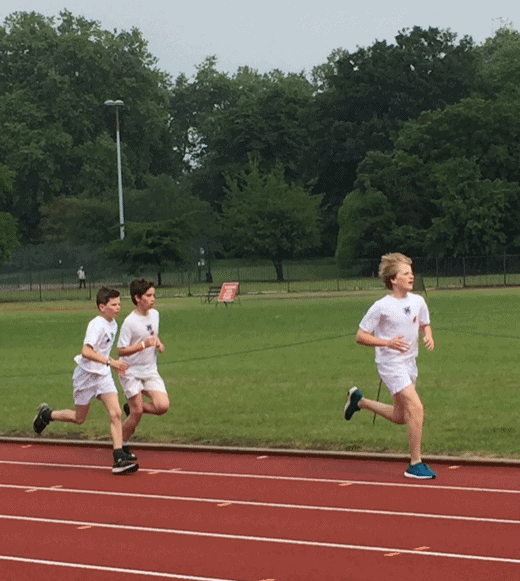
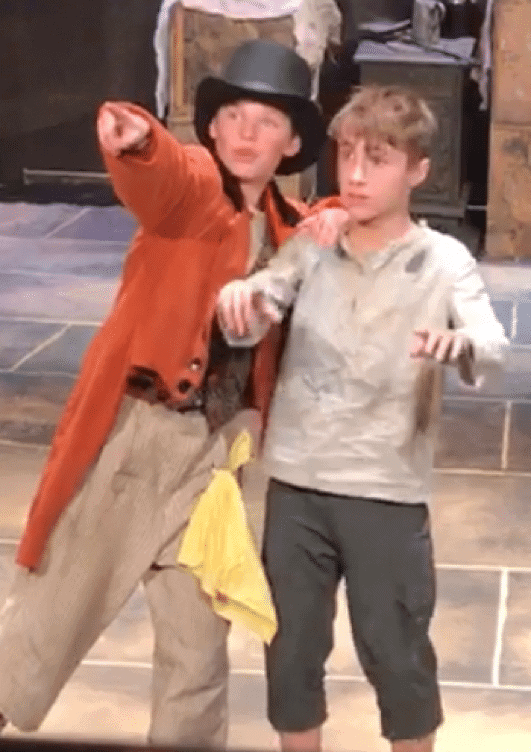
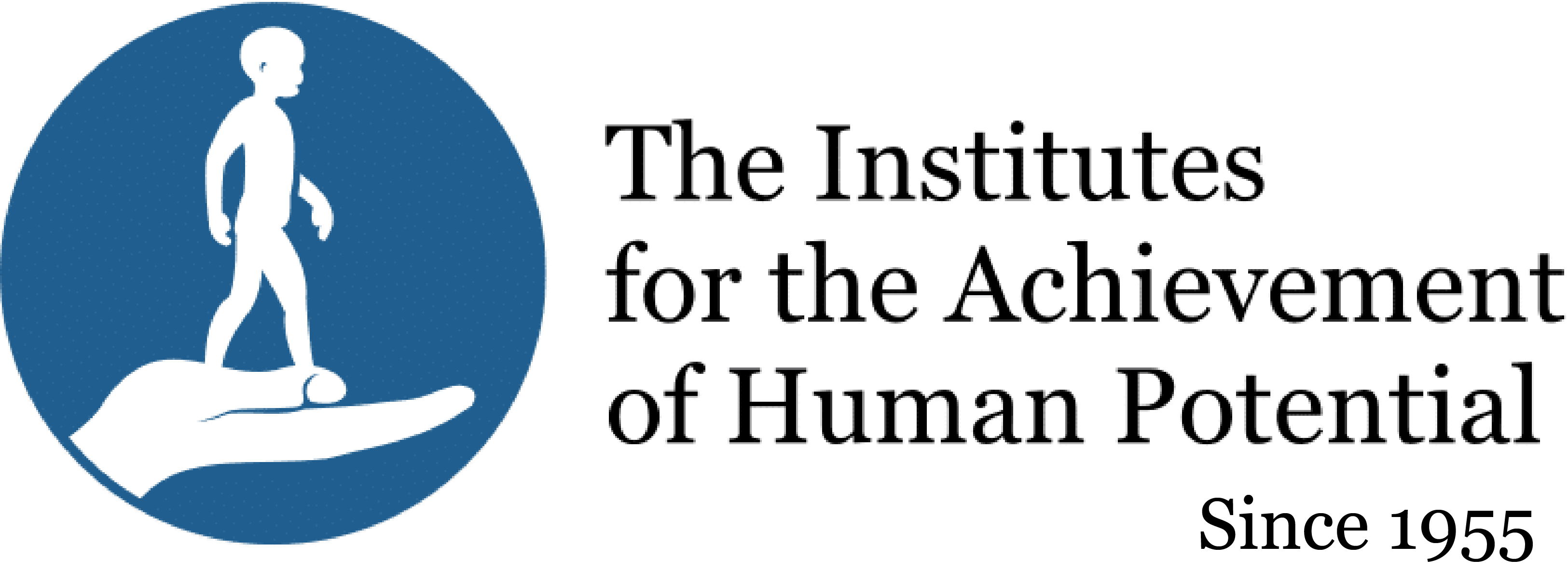
 Donate
Donate


